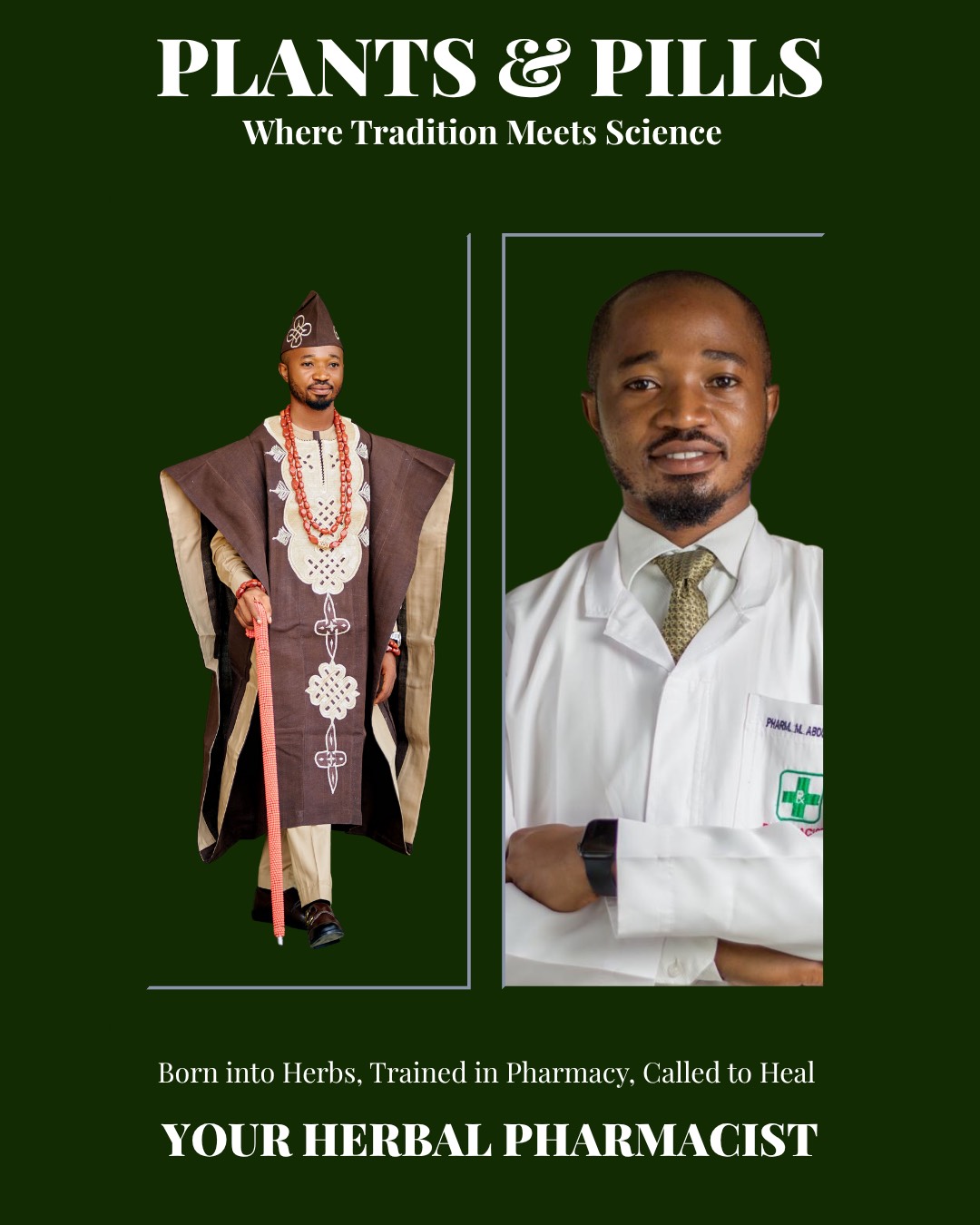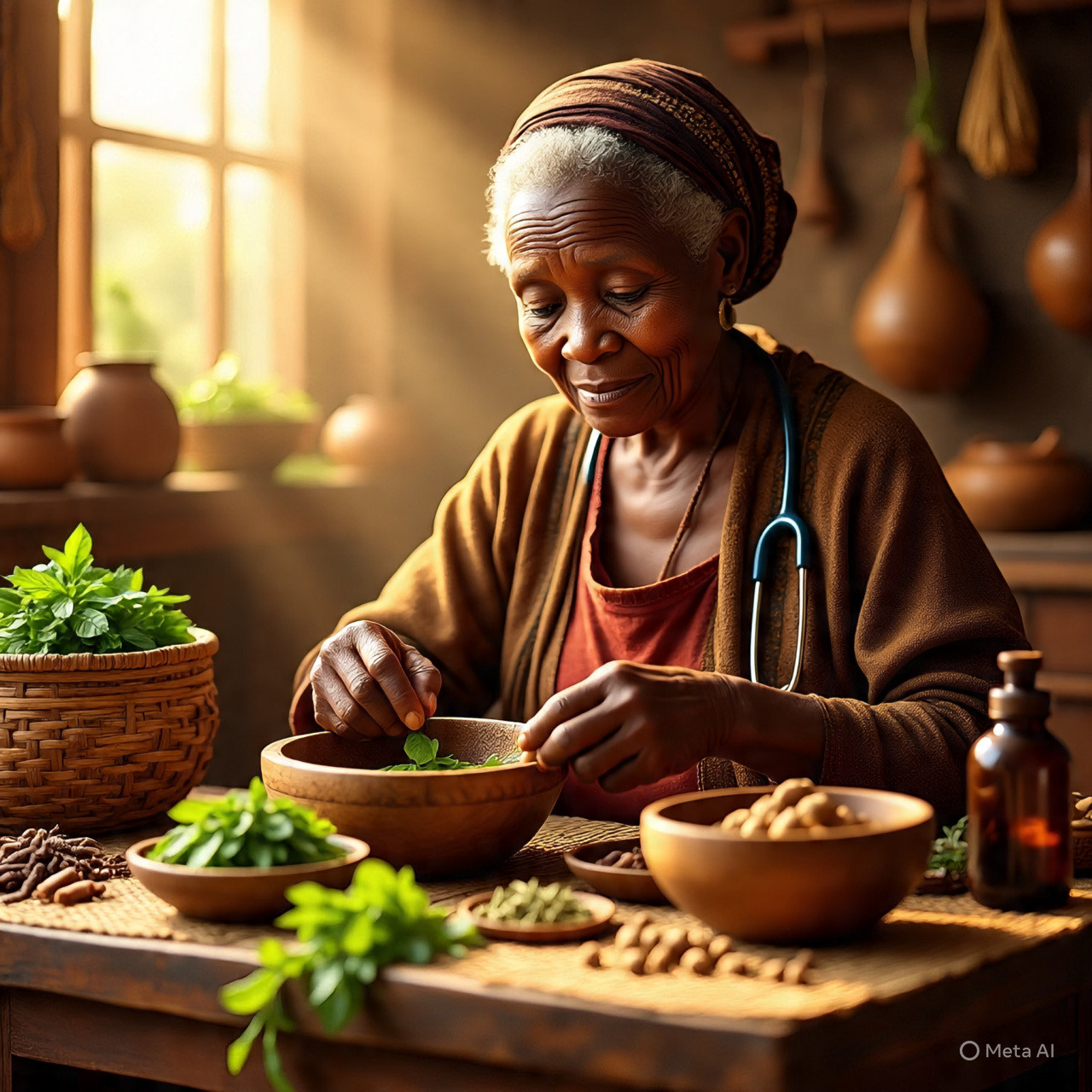Currently Empty: ₦0.00

In many Nigerian households, the lines between tradition and modernity blur quietly every day. A child comes down with a fever. Grandma reaches for bitter leaf water, squeezed fresh in the backyard — while someone else reaches into the drawer for paracetamol. Hours later, a neighbor may suggest agbo, while a trip to the pharmacy yields a malaria drug.
This is the Nigerian healthcare reality, not an “either/or,” but a complex blend of both herbal and modern remedies. And yet, despite this natural co-existence in our homes, our health systems, our schools, and our public policies remain sharply divided. There’s no structure, no safety net, and often, no guidance. The result? Confusion, delayed care, and avoidable harm.
So, the question arises: If Nigerians are already integrating traditional and modern medicine informally, isn’t it time we make this integration intentional, safe, and strategic?
🌿 The Reality on Ground: Healing by Instinct
Nigerians are resourceful. When healthcare access is limited, or when trust in formal institutions breaks down, people turn to what they know. Agbo (herbal concoctions) is brewed for typhoid. Alligator pepper is used in spiritual cleansing. Pawpaw leaves are soaked for malaria. At the same time, people take blood pressure medications, antimalarials, and antibiotics, sometimes on the same day.
This isn’t ignorance. It’s survival. But it’s also dangerous!.
Many people combine herbal remedies and pharmaceutical drugs without understanding the interactions. Others abandon their prescriptions for unregulated alternatives. On the other hand, some doctors dismiss traditional medicine entirely, while some herbalists vilify modern science. And caught in the middle are the people, the ones who simply want to feel better.
🌿 Understanding the Two Worlds
To bridge the gap, we must first understand what each system offers:
🧪 Modern (Conventional) Medicine
-
Built on scientific testing and clinical trials
-
Regulated, standardized, and safety-focused
-
Effective for acute care, surgery, infection control, chronic disease management
-
Operates through systems: hospitals, pharmacies, diagnostics
🌿 Traditional (Herbal) Medicine
-
Rooted in indigenous knowledge and spirituality
-
Passed through generations via apprenticeship and oral tradition
-
Holistic: treating the body, mind, and spiritual causes of illness
-
Community-centered, affordable, and culturally trusted
It’s not a matter of one being superior to the other.
It’s about recognizing that they serve different but complementary roles.
Both systems aim for healing, but use different paths.
🚫 The Dangers of Disconnection
When these two systems operate in isolation or worse, in opposition, the patient suffers. Consider these realities:
-
Someone on antihypertensives takes a stimulant-based herbal remedy and experiences a stroke.
-
A person with liver disease drinks a high-dose herbal decoction, worsening their condition.
-
A patient hides their use of traditional remedies from their doctor, leading to misdiagnosis or delayed treatment.
The consequences of disconnection are real:
🛑 Delayed recovery
🛑 Herb-drug interactions
🛑 Toxicity from over-concentrated or contaminated herbs
🛑 Misuse due to lack of education
This is not the fault of herbs or science. It’s the fault of the gap between them.
🛤️ The Case for Integration: Learning from Others
Countries like China and India have long recognized the value of combining ancient wisdom with modern medical advances. In China, hospitals often have Traditional Chinese Medicine (TCM) departments alongside surgery and internal medicine. In India, AYUSH (Ayurveda, Yoga, Unani, Siddha, and Homeopathy) is part of national health planning.
Nigeria is not without progress. The Federal Ministry of Health established the Department of Traditional, Complementary and Alternative Medicine (TCAM), and some states have begun collaborative research. But we still have a long way to go in integrating these systems at the patient level, in clinics, pharmacies, and public health campaigns.
This is where professionals like me, trained in modern pharmacy and born into a tradition of herbal healing must lead the charge.
🧑🏾⚕️ My Journey: Born Between Two Systems
I didn’t choose between tradition and science, I was born at their intersection. Raised in a family of traditional healers, I grew up hearing the language of leaves, roots, and ancestral wellness. Later, I trained as a pharmacist, learning about active ingredients, clinical trials, and standardized dosing.
I saw firsthand how both systems hold immense value and how patients are confused when forced to choose between them. That’s why I founded Plants And Pills, a platform, a practice, and a mission to integrate healing knowledge for the benefit of our people.
Every day, I see people trying to heal with herbs in one hand and a prescription in the other. They don’t need judgment. They need guidance.
🛠️ What Integration Should Look Like
True integration is not about dilution. It’s about creating a safe, evidence-informed space where both traditional and modern approaches can thrive:
✅ Primary health centers with herbal dispensaries for mild cases
✅ Spiritual and cultural counseling alongside clinical diagnosis
✅ Certified herbal practitioners working with licensed pharmacists
✅ Research into dosage, interactions, and efficacy of local herbs
✅ Clear communication between patients, herbalists, and doctors
We can begin small: A pharmacist who asks “Are you taking any herbs?” without judgment. A herbalist who refers a patient with severe symptoms to the hospital. A policy that regulates herbal formulations. A clinic where bitter leaf is not a backdoor secret, but a documented option.
📣 Conclusion: It’s Time to Rebuild Trust and Collaboration
Nigeria’s future of healing does not lie in choosing between past and present. It lies in creating a future where trusted traditions and tested science walk hand in hand.
Our people already believe in both. It’s time our systems do too.
Let’s build bridges not barriers.
Let’s stop the confusion and start the collaboration.
Let’s heal together.
📌 Written by Pharm. Mubarak Okikiolamilekan Abdulsalam
Founder, Plants And Pills | Herbal Pharmacist | Integrative Medicine Advocate



